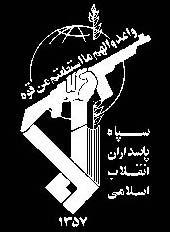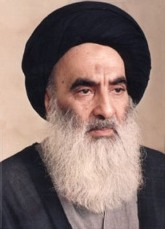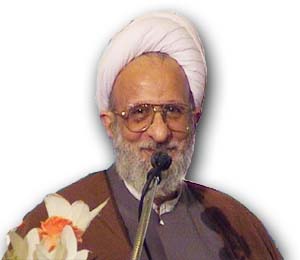Iranian Nuclear energy triumph spells the end to Western political hegemony
The Iranian nuclear energy issue, will undoubtedly be one of the defining moments in international relations, the European Union has been humiliated and relegated to political irrelevance and has seen both its political and moral authority decline. Neither the United States or Iran consider the European Union to be a relevant political body. The European Union far from carving out an independent course during these negotiations has been fettered and sabotaged by the United States largely with assistance from it political subordinate state Britain.
However, the political demise and ineffectual diplomatic grandstanding of the European Union is only a side issue, at the heart of this western created crisis, is the demise of the United States hegemony; whilst the the United States undoubtedly remains the most militarily powerful and political influential nation in the World its power is very much on the wane and this crises has seen the United States come to the realisation that it can neither impose its will on Iran by military or political force; ultimately the issue will be resolved on Iranian terms.
This is due to seismic change in geopolitics and power in the Middle East following the forlorn US invasion and occupation of Iraq. Iran is now unquestionable the regional superpower, the United States simply cannot much Iran's political or military power in the region at present. The nuclear option is not viable because the United States is dependent upon the region natural resources and the stability of the oil market. Thus a nuclear strike would see the US Empire collapse like a house of cards. Moreover, it would precipitate international anarchy.
The Western media's irascible hostility towards Islamic self-governance particularly has led to flagrantly bias and inaccruate anti-Iranian reporting of the Iranian nuclear energy issue. The western media has failed to identify that the Iranian President's key speech at the UN was an rapturously received throughout the Islamic World and was generally well received, it was at least as successful as the former Iranian Prime Minister Mossadeq's speech at the UN during the Iranian oil nationalisation issue in over fifty years ago, which led to the US and British coup, codenamed TP Ajax, against the democratically elected government of Iran and the installing a predominately Jewish, pro-Zionist, Shahist government.
The Western media's assessment is that this speech was disastrous and bad received, yet it succeeded where the Khatemi government failed, the IAEA did not unanimously support the first EU resolution to refer Iran to the security council, notwithstanding intense US lobbying, bullying and bribery. The failure to achieve this referral was staggering, prior to the invasion of Iraq, such a referral would have undoubtedly succeeded. The reality is that international community is more prepared to stand up to the United States than it previously was, the awe of US invincibility is gone forever. The US economic demise and in military failures has had the corollary of weaken its political dominance.
This was even more apparent, when despite relentless rhetoric, threats and propaganda, Iran resolutely refused to cower from US and European aggression and would not as the previous Iranian administration had done make endless concessions and bargain away its rights under international law. The corollary of Iran's position was seen in the fact that most countries were not willing to censure Iran on its human Rights record at a meeting of the UN Grand Assembly, this was a shocking set back for Western diplomacy, yet its magnitude was not mentioned in any many Western media outlet.
However, the most telling result was the recent decision by the IAEA to not refer Iran to the UN Security Council. The US maintains that it had the votes but that it wished to give the negotiations another chance. In truth, Chinese and Russian refusal to support the motion would have made a referral to the Security Council pointless. Moreover, the decision by the Majlis to repudiate additional protocols to the NPT, effectively changed the mood of the IAEA: the US did not have the votes for a referral. In fact, NAM issued a statement saying the reverse, they lauded the expansion of cooperation and confidence-building measures by Iran, which they said were far beyond the commitments of the Islamic Republic to help settle remaining issues and ambiguities related to the country's nuclear activities and called for the elimination of all nuclear weapons as the only way to counter the threats of nuclear arsenals.
The most pregnant feature is that the US and the EU have now retracted their initial demands that Iran not be allowed to conduct uranium conversion or heavy water research reactors and is now only trying to negotiate a settlement on uranium enrichment. The reality of course is that the US is impotent to impose its will on Iran politically or militarily and therefore can only hope to negotiate by offering a favourable economic package. However, it is unlikely that Iran will agree to anything less than uranium enrichment on its own soil and the proposal forwarded by president Ahmadinejad during his UN key speech, where western companies are allowed to participate in the process is the basis of any resolution.
This is a massive climb down by the United States and the European Union and demonstrates that this crisis was manufactured rather than real; it was undoubtedly seen as the precursor to economic sanctions then war. It is apparent that economic sanctions would harm the European Union, which is dependent upon Iranian oil more than Iran, so there can be little doubt that the real objective was war. However, what lies at the heart of this strategy is bluff - the United States own military strategist predict that Iran can cause more harm to the US and her allies in the region, than the US can cause to Iran. In fact the estimations of the human resources needed for an invasion and occupation exceed that politically available to the US military.
It was presupposed by the West that Rafsanjani would win the Iranian election and that a negotiation would be possible with him due to suspicions that he was corruptible or susceptible to political manipulation. However such speculation proved flawed and despite European campaigning for Rafsanjani, Ahmadinejad was elected president. His categoric refusal to appease the EU and US aggressors or forgo any of Iran's sovereign rights, exposed the weakness of this strategy. The corollaries of Iran's successor at opposing such tyranny will undoubtedly be mirrored by other developing nations; and the European Union as an international entity is now a political anachronism.







